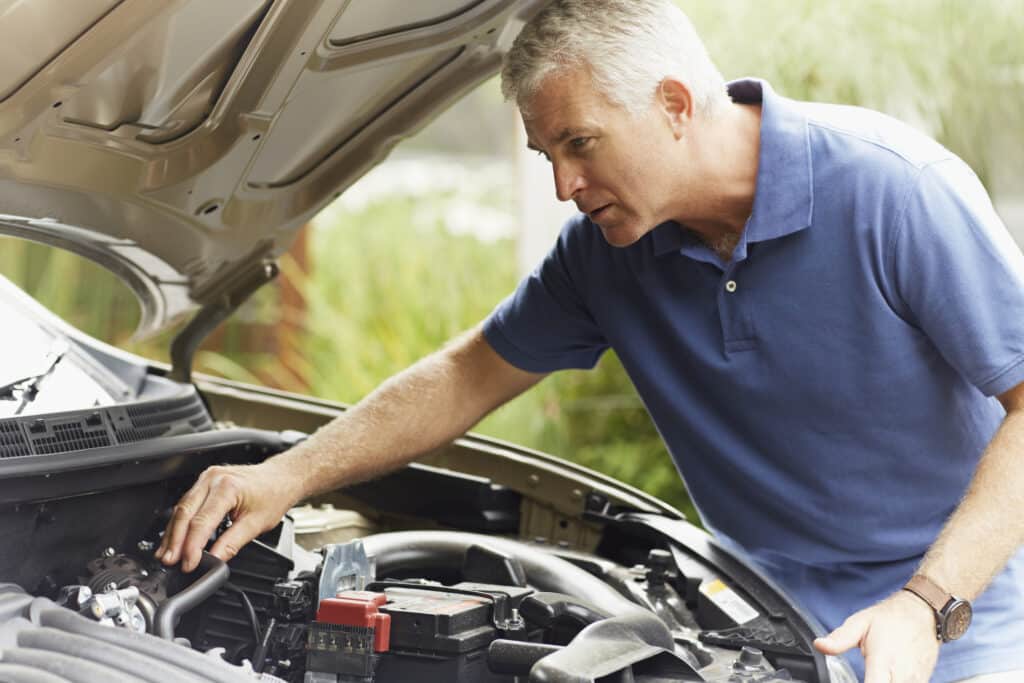Auto repair encompasses a wide range of services, from brake and exhaust repair to tune-ups and more. Common car problems can affect vehicles of all makes and models, causing issues like unusual noises, check engine lights, and decreased performance. When these issues arise, Dayton auto repair at EG Auto Center is here to provide top-notch solutions without straining your finances. This guide aims to address your questions regarding common car problems and shed light on quick solutions, helping you navigate unexpected car issues effectively.
Common Car Problems and Solutions: Your Questions About Auto Repair Dayton
Q1: Why is my car constantly warning me that the coolant level is low?
A: If the low coolant warning light illuminates, it’s essential not to continue driving but to head to an auto repair shop promptly. EG Auto Center offers straightforward and often cost-effective solutions. Delaying the repair can lead to expensive engine issues. The continuous flashing of the low coolant warning light indicates a leak in the vehicle’s cooling system. Such leaks can occur externally, including radiator hoses, hose connections, or the radiator itself. Additionally, a faulty seal on the radiator cap may also cause a leak, which our specialists can easily repair.
Q2: Why is the ABS light on in my car?
A: An illuminated Anti-Lock Braking System (ABS) warning light on your dashboard indicates a need for inspection via vehicle diagnostic service in Dayton. Your ABS is a crucial safety system, and this warning should not be disregarded. Common issues that trigger this light include speed sensor failure, low brake fluid levels in the reservoir, malfunctioning ABS modules, or problems with the ABS system’s power supply.
Q3: How do I resolve a persistent traction control warning light?
A: When the traction control light comes on while driving, it typically signifies a loss of grip or traction during maneuvers or on slippery surfaces. However, if the warning light remains lit without apparent cause, it’s advisable to turn off and restart your vehicle to rule out a temporary glitch. If the light persists, bring your vehicle to our Dayton auto repair shop, where we can diagnose and repair the issue.
Q4: What does the throttle control warning light signify?
A: The throttle in your vehicle controls the connection between the gas pedal and acceleration, regulated by a sophisticated system. Interruptions in electrical signals can lead to reduced acceleration and trigger the throttle control warning light. If this light appears, it’s crucial to seek reliable auto repair service provider in Dayton.
Q5: What are the common issues that cause the throttle control warning light to illuminate?
A: Five major issues associated with the throttle control warning light include sudden drops in fuel economy, intermittent loss of throttle control, unexpected or unsafe unintentional acceleration, hesitation or stumbling during acceleration, and the engine getting stuck without accelerating beyond a fast idle.
EG Auto Center is your trusted partner in addressing common car problems through top-tier Dayton auto repair services. When faced with warning lights or unusual vehicle issues, timely diagnosis and professional repairs are essential to ensure your safety and your vehicle’s optimal performance. Don’t hesitate to seek expert assistance to keep your vehicle running smoothly and reliably.
How to Handle Common Car Issues: Vehicle Diagnostic Service Dayton
Dealing with common car issues is a part of vehicle ownership. From engine misfires to dead batteries and clutch problems, these issues can disrupt your daily commute. To ensure your car runs smoothly, it’s essential to understand these problems and how to address them effectively with vehicle diagnostic service in Dayton.
Engine Misfiring:
When you start your engine, a distinct pop sound can indicate a misfire. This disruption in the cycle of intake, combustion, and exhaust can have various causes, with a spark plug issue being the most common.
Steps to Address a Misfire:
- Examine the Spark Plug: Open the hood and inspect the spark plug. If it’s black, clean it and try starting the car.
- Replace the Spark Plug: If cleaning doesn’t resolve the issue, replace the spark plug.
- Consult a Mechanic: If the misfire persists, have your vehicle inspected by a skilled engine mechanic, as it could be related to the cylinder or piston head.
Dead Battery:
A dead battery can be a major hindrance to your commute. Signs of a dying battery include a slow engine crank, while a dead battery won’t start the car. Various factors can lead to a dead battery, such as an old battery, prolonged non-use, lights left on, exposure to extreme temperatures, or terminal corrosion.
Steps to Address a Dead Battery:
- Check Battery Fluid: If your battery responds to a jumpstart, have it checked for fluid loss.
- Replace the Battery: If a jumpstart doesn’t work, it’s time to replace the battery.
- Examine the Charging System: If you have a good battery that won’t charge, consult a skilled mechanic to diagnose and repair the charging system.
Tight Clutch Pedal:
A clutch pedal should operate smoothly and without excessive resistance. If you find yourself exerting more effort than usual to engage the clutch, there could be an issue.
Possible Causes and Solutions:
- Pedal Obstruction: Check for any objects obstructing the clutch pedal and remove them.
- Worn-out Clutch Disc: Have your mechanic thoroughly inspect the clutch disc, as prolonged use may cause wear. Replacing the clutch disc can resolve the stiffness issue.
- Adjust the Clutch Pedal: If recent clutch replacement has made the pedal stiffer, it may need adjustment for smoother operation, which can be done at your local car garage.
Squeaking Brakes:
If you press your brakes and hear squeaking, it’s a clear indication that your brakes need attention. While wet brakes may squeal temporarily due to water, persistent squeaking suggests worn brake pads or shoes.
Steps to Address Squeaking Brakes:
- Replace the Brake Pads or Shoes: It’s advisable to replace the brake pads or shoes promptly, as brakes are a crucial part of safe driving.
- Inspect the Brake Rotors: Check the condition of the brake rotors for signs of wear or damage. If they are uneven or worn excessively, it’s recommended to have them resurfaced or replaced.
- Lubricate Brake Components: Applying a high-temperature brake lubricant to the contact points of the brake pads can reduce friction and eliminate squeaking.
Overall, knowing how to handle common car issues is essential for maintaining your vehicle’s performance and safety. Whether it’s addressing engine misfires, dead batteries, tight clutch pedals, or squeaking brakes, following the appropriate steps and seeking professional assistance when necessary will ensure your car runs smoothly and reliably on Dayton’s roads.
EG Auto Center–Reliable Service Provider for All Types of Auto & Exhaust Repair Dayton
Dealing with common car problems can be frustrating, but with the right tools, you can fix them yourself or seek professional help when needed. At EG Auto Center, we offer all kinds of auto repairs from car battery, to vehicle diagnosis and suspension repair service Dayton. Contact us today!

